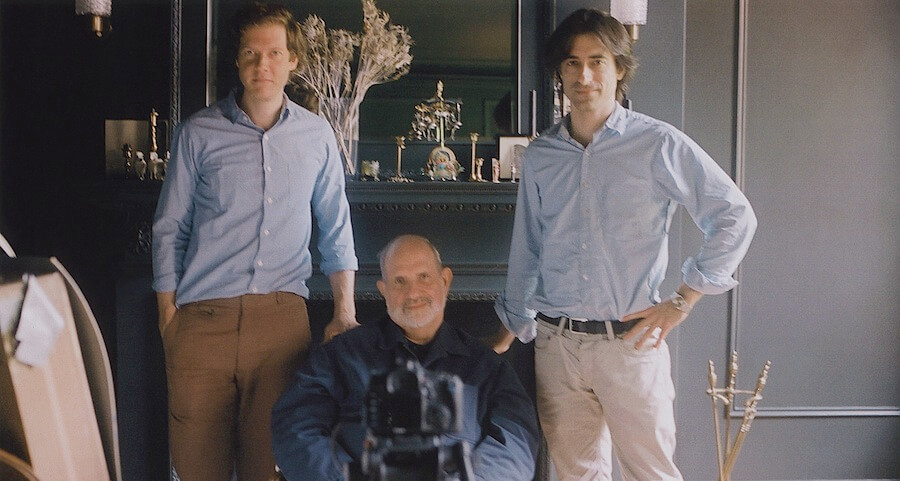Noah Baumbach and Jake Paltrow were making a movie for themselves when they started on “De Palma,” a career-spanning doc about their friend and fellow filmmaker, Brian De Palma. But as they started piecing it together, the two realized they had created something for everyone. The result — which touches on the legendary director’s hits (“Carrie,” “The Untouchables,” “Mission: Impossible”) and his oddballs (“Phantom of the Paradise,” “Blow Out,” “Femme Fatale”) with equal screentime — says a lot not just about De Palma as an artist but as someone who’s been able to eke out a singular career in a tough business. RELATED: Interview: Daniel Radcliffe on nerding out over Michael Caine on “Now You See Me 2” This is a film about a filmmaker talking to filmmakers, which you don’t see often in documentary profiles. If it was just a journalist interviewing him at a junket, he might not be as forthcoming. Noah Baumbach: It’s shared experience. It’s apples to apples. You have the experience of making films, which is very specific. [A journalist] is coming to a movie when it’s done. It’s not about that when you’re a filmmaker talking with other filmmakers. You know, on some level, what they’re talking about. Jake Paltrow:No matter how big a movie is — it could be a crew of 10 or 250 people — they all run by a sort of paramilitary structure that’s kind of the same all over. You’re all moving this big thing around. When it’s directors talking to directors you don’t have to explain the game. That was a major component of making the movie with Brian, besides having the long friendship with him. He also rarely talks about themes and ideas. He mostly talks about the process and technical stuff. I sometimes get the sense that’s what filmmakers prefer to talk about when they’re being asked about their movies. Baumbach: I find there’s nothing more difficult than describing the movie you just made. And then of course, when you end up doing press for a movie that’s all you do. You come up with a thing that’s about 50 percent true and 50 percent “I guess this makes sense.” Paltrow: Usually someone else says something really good and you say, “Can you say that again?” [Laughs]
Baumbach: You pick up a line and say, “OK, I’m going to use that.” It’s not that it’s bulls—; it’s that I don’t know the answer. So we didn’t want to ask Brian those questions. It’s almost nuts-and-bolts in a way: “What was interesting to you about this story that you wanted to make it into a movie?” “How did you find that location?” Obviously, some filmmakers are much better at knowing what they just made. RELATED: Interview: Patrick Wilson won’t do horror — except for “The Conjuring” You also get a vivid picture of how much chance plays a role in his career. Some people think directors are obsessive architects of their filmographies, when so often that’s not true. Paltrow: That’s just the way it is. You’re preparing one thing and it falls apart, and you go on to something else. Or this actor is going to do it, and the next day they’re gone and you still have to make the movie. There aren’t just Brian’s experiences. These are the way movies get made. Baumbach: That was something that when we cut it together was unexpected to us in some ways: that’s it’s about what it takes to have a career in the film business, from an artistic as well as a practical way. The story he tells about “Carrie” so illustrates what it means to be a director. He had been fired off of “Get to Know Your Rabbit” [in 1972], so he was trying to get back in the studio system. They were saying his budget had to be $1.6 million. Part of him wants to say “F— you” and walk away. But he knows that wouldn’t work. So he tells them what he needs to hear and he makes it his way. That is being a director. That story is being a director. Follow Matt Prigge on Twitter @mattprigge
Jake Paltrow and Noah Baumbach on ‘De Palma,’ a film about a filmmaker

A24


















